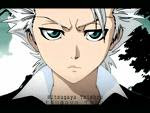A short story is a reading that could be read in just one sitting. It is the most common definition of short story that Edgar Allan Poe greatly emphasized. When a writer creates a short story s/he has several purpose. These can be to: entertain or inform a reader by telling a story, make the reader ask questions, take a position of an issue by conveying an opinion, or to make the reader feel sad or happy, angry or pleased, opposed, amused... It could have more than one purpose which becomes clear to the reader through the tone and style of writing used by the author.
William Boyd is a great writer. He captivates the reader to continue reading his essay even though the topic is not that exciting. The essay had a very good time frame wherein he talked about about how short story originated despite the vagueness of how it came to be. He also cited a lot of short story writers and some of their insights and their contributions to short story.
The Cathedral
Personally, I don't like story at first when I came to class last meeting. The story was really boring. But I do like how the writer Raymond Carver defines certain scenes of the story. The descriptions were very detailed, it gives us an actual picture of what happens in the story. Also, the way he defines the characters of the story was fantastic. He embedded the true colors of the characters within the story, which gave me a difficult time in finding what he wanted to convey.
After a closer look on the story, I finally grasped the purpose of the writer in writing the story. The story helped me understand more on how to handle disabled persons. It made me realize that they are not just persons needing our guidance and help, but also they could be our guide. There is still a mutual relationship between a normal and a disabled person. It is true that they are not capable of doing things what we normal persons could usually do, but we knew that they are trying their best in every situation they met, and that they are trying to make the most of it despite their disability. This are things that we normal people usually took for granted. We live our lives the way we like.
"Virginia Woolf [...] said of photography, 'Isn’t it odd how much more one sees in a photograph than in real life?' This gives us, I think, a clue to the enduring power and appeal of the short story—they are snapshots of the human condition and of human nature, and when they work well, and work on us, we are given the rare chance to see in them more 'than in real life.'"
People tend to live in the present moment and in the future. We had a great picture of what we would like to become, but it is not always what we will become. During our journey, we had some downfalls, struggles that we need to overcome. But if we are that passionate to achieve these goals then, why don't we give it a try. As what Helen Keller says "Never bend your head. Hold it high. Look the world straight in the eye".
William Boyd is a great writer. He captivates the reader to continue reading his essay even though the topic is not that exciting. The essay had a very good time frame wherein he talked about about how short story originated despite the vagueness of how it came to be. He also cited a lot of short story writers and some of their insights and their contributions to short story.
The Cathedral
Personally, I don't like story at first when I came to class last meeting. The story was really boring. But I do like how the writer Raymond Carver defines certain scenes of the story. The descriptions were very detailed, it gives us an actual picture of what happens in the story. Also, the way he defines the characters of the story was fantastic. He embedded the true colors of the characters within the story, which gave me a difficult time in finding what he wanted to convey.
After a closer look on the story, I finally grasped the purpose of the writer in writing the story. The story helped me understand more on how to handle disabled persons. It made me realize that they are not just persons needing our guidance and help, but also they could be our guide. There is still a mutual relationship between a normal and a disabled person. It is true that they are not capable of doing things what we normal persons could usually do, but we knew that they are trying their best in every situation they met, and that they are trying to make the most of it despite their disability. This are things that we normal people usually took for granted. We live our lives the way we like.
"Virginia Woolf [...] said of photography, 'Isn’t it odd how much more one sees in a photograph than in real life?' This gives us, I think, a clue to the enduring power and appeal of the short story—they are snapshots of the human condition and of human nature, and when they work well, and work on us, we are given the rare chance to see in them more 'than in real life.'"
People tend to live in the present moment and in the future. We had a great picture of what we would like to become, but it is not always what we will become. During our journey, we had some downfalls, struggles that we need to overcome. But if we are that passionate to achieve these goals then, why don't we give it a try. As what Helen Keller says "Never bend your head. Hold it high. Look the world straight in the eye".
